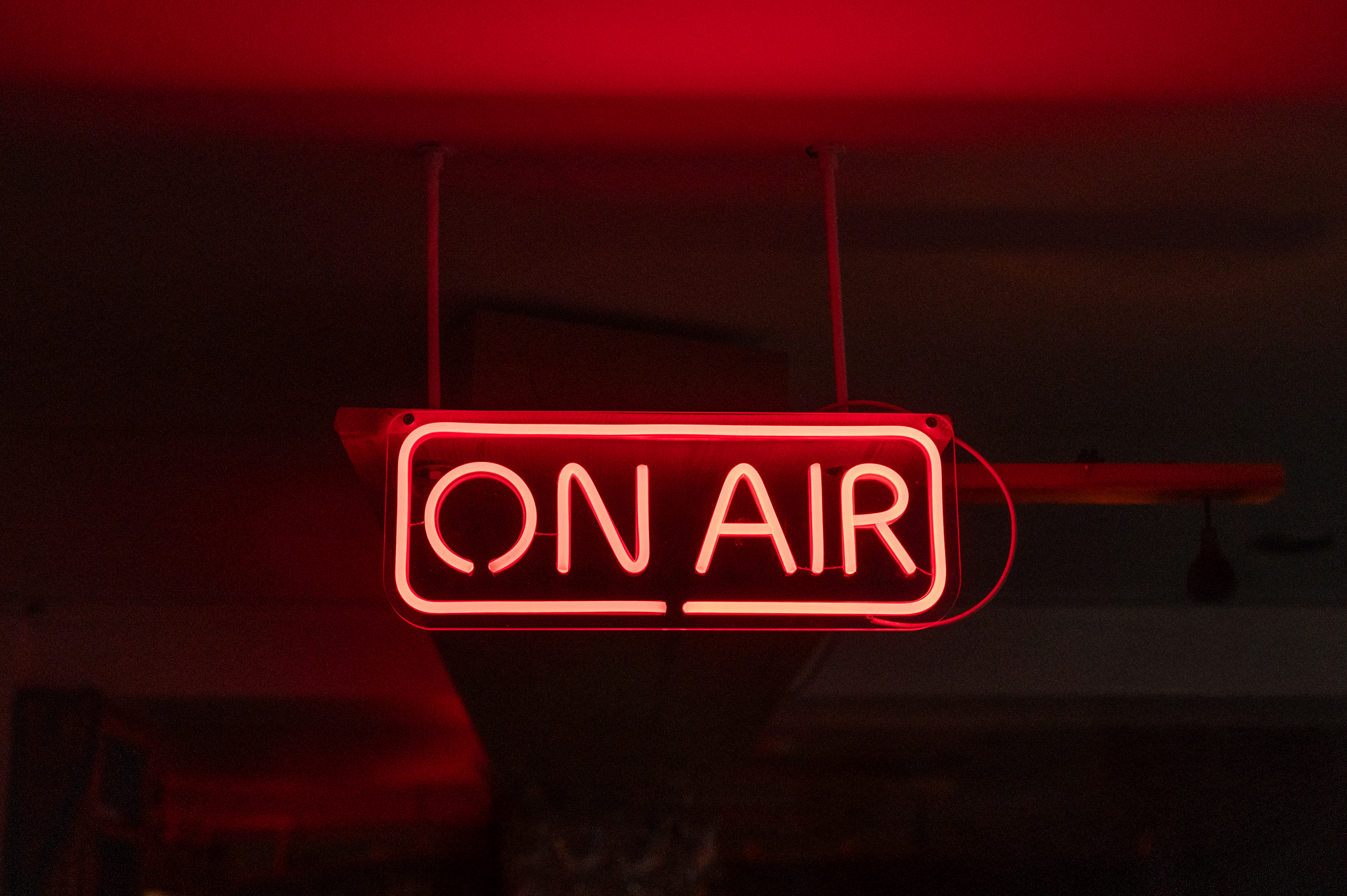RICHMOND, Va. — The audience was booing Ira Glass.
It was the opening session of Resonate, a podcast festival founded three years ago by Chioke I’Anson at Virginia Commonwealth University’s Institute for Contemporary Art. Audio documentarian Eleanor McDowall played a clip of the social media show Subway Takes, where Glass argues that “every podcast is better at 2.0 speed” because “your brain can take it in, you totally can get the information, and you can listen to more podcasts.” I’Anson grabbed the mic back after McDowall’s presentation and quipped: “Our lord and savior losing his damn mind.”
The audience was made up of nearly 500 audio producers, many of whom got into this business because of Glass’s groundbreaking work on the podcast and radio show, This American Life. But now, it seemed Glass was an avatar of podcasting’s moneyed class, one the purveyors and consumers of “always on” programming that sees the medium not as an art form, but as a vessel through which ads can be sold by the batch.
The audio industry has had a spectacularly bad couple of years, and the people who came to Resonate were, for the most part, not the ones who got rich in the boom times. I spoke with one producer, Nick Andersen, who was currently working in a cheese shop. He said he felt like a failure for taking work outside the industry, but he also talked about the process of cheddaring with such specificity and enthusiasm that I couldn’t help but think of titles for a cheese-based show. After all, he told me that people care less about the actual cheese they’re buying than about the stories the cheeses tell. They buy stories with their hunks of brie that they can share later around their dinner tables.
The last time I attended a conference like this was in 2019, when the money was flush and the jobs were plentiful. Production companies paid for their entire staff to fly out and stay in hotels, and everyone was hiring. There was definitely some schmoozing at Resonate this year, but stripped of any illusions that they might strike gold, the people still standing were in it for the love of the game. They just love telling stories, wherever they have the chance—even a cheese shop.
As institutional venues for experimental audio like BBC’s Short Cuts have ceased production, there’s been more energy around new independent projects like Signal Hill, Written in Air, and Audio Flux. TK Dutes, who is a former colleague of mine, gave a presentation about her new podcast, The Secret Life of TK Dutes, which is an independent project she turned to after experiencing burnout. “ I wanted to make the leap from making a podcast using the formal rules to making a podcast that breaks the rules. A podcast that lights up my nervous system instead of tearing it down,” she said. “It’s unorthodox. It’s hard to market. But it’s true.”
What that means practically is that Dutes has thrown out the traditional production calendar and is giving each of the episodes to a different producer on her team to shape into their own vision. Each episode sounds different. There is no set production or release schedule. The work centers Dutes and her collaborators’ mental and physical health. “ I wish I could pay a million dollars to each of these people because they deserve a million dollars,” she said. “What I got is a million hours, and we’re going to take the time it takes to make the damn show. So, episode two? It ain't even cooked yet.”
I saw that rejection of market-oriented motivation echoed throughout the weekend. One of the sessions I attended was called “Death Doula Work for Your Creative Life,” led by NPR host and reporter Emily Kwong. She encouraged the audience to consider the inevitability of their deaths as a way to guide the lives they choose to live. This extended to the ways these shows are produced. Kwong advocated for trauma-informed reporting and long production timelines.
“I think this is the stuff that we forget because we're so focused on what we want it to sound like, what awards we wanna win, who we wanna impress, what the product has to do in the world,” Kwong said. “Our audience matters the most, right? Except when you burn out. And I don't want us to keep doing that to each other. I don't trust the business leadership in our industry to protect us. And so we have to create work that protects us with each other.”
One of the last events on the Resonate calendar was Pitch Party, a competition where three contestants pitch their show concepts for the chance to win $10,000. At first, I dreaded it. I saw a pitch contest a decade ago where the contestants withered under the stage lights as prominent hosts and executive producers grilled them about marketing questions like repeatability, release cadence, and audience growth. It was like watching in real time the way ideas become stunted as they’re prodded and poked at in Zoom rooms and Google Docs by executives, marketers, and salespeople. I really didn’t want to watch young, optimistic people become disillusioned with their own ideas as they tried to defend them to an audience.
The young contestants at Resonate had done a shocking amount of independent reporting with very few resources, and they each possessed an impressive command over their topics. One contestant, 26-year-old Lyric Bowditch, pitched what she said would be the first piece of longform journalism in any medium or language to tell the complete story of Giulio Regeni, an Italian student who was kidnapped, tortured, and murdered by the Egyptian police in 2016.
Remarkably, these three judges didn’t ask a single question about audience strategy, release cadence, or franchising the idea for future seasons. Nothing about cross-promotion, feed drops, or comparative titles in the space. They asked questions about the reporting, about the safety of the producers and their subjects, and about the ways different themes tied together in the stories. The tenor of the judges' questions was starkly different from what I had witnessed a decade ago, and I couldn’t help but attribute that difference to where the industry is now versus where it was in 2014. These questions will be pertinent if and when these shows hit the market, but the contest was a refreshing respite from all of that, where the story ideas were allowed to just stand on their own. Or maybe the spectacular bursting of the last decade’s podcast bubble has quieted any delusions about the profitability of these projects, freeing the gatekeepers to focus on what makes them good in the first place.
At dinner one night, I had a conversation with Dave Shaw, a veteran editor and showrunner who has been in the industry since 1999. I wanted to know if, from his vantage point, things felt as bad to him as they did to me. To my surprise, he had a slightly less pessimistic view of the last decade, telling me:
“You can work a whole career and never experience a boom or a bust. If you had told me in 2011 all the places I would work, I would've said, ‘Well, that's great, but what could I possibly do at those places?’ None of them were in audio. It didn't make any sense for any of them to do audio. The other piece is, the boom allowed a lot of stuff that never, ever, ever otherwise would've been made to get made.”
What’s left when the rich people lose interest is the work, and Resonate was a reminder of the best parts of that work. McDowall’s opening session was called “Heartbeat,” which discussed entrainment, the idea that people’s hearts sync with each other and the other sounds around them. The session opened with the sound of a ticking clock. Shaw was in the audience, sitting in a way that he could feel his heart beating in his neck. After a few seconds, he noticed his heartbeat sync up with the ticking, as McDowall promised it would.
“What you hear can change your body, and that was true for me and the person sitting next to me, and the person sitting next to them. It’s good to be reminded that there are people who do audio for its own sake, and it’s still very powerful,” he said. “I had kind of forgotten that.”






